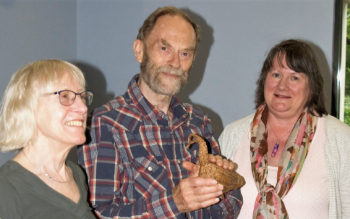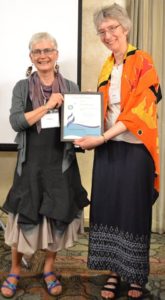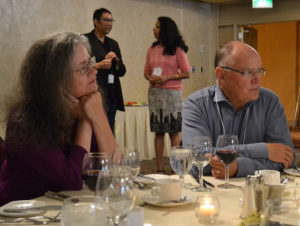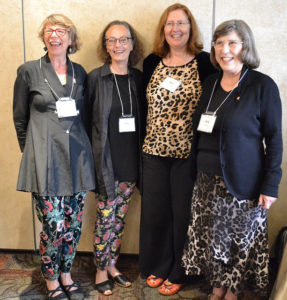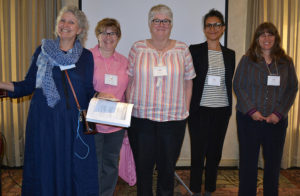The Tamarack award was instituted to recognize members who go “above and beyond the call of duty” in their volunteer work for the Society.
This year we have chosen Christopher Blackburn as the Tamarack Award recipient for that very reason.
The award is a symbol of our thanks and gratitude for what he has given to the Indexing Society of Canada |Société canadienne d’indexation and is well-deserved after many, many years of service for our Society.
Chris served as a dedicated Central Canada regional representative and has been a member of the Executive committee where he provided wise and thoughtful contributions.
You could consider Chris our Society historian! He has in his possession every issue of the Bulletin since its inception, attended numerous conferences, both national and international, notably England, Ireland, and the US. He has made several contributions to the Bulletin reporting on the many events he attended. His involvement can be traced back to 2001, planning the Toronto conference when our Society was called the Indexing and Abstracting Society of Canada (IASC/SCAD). Chris has a deep and personal knowledge of the evolution of indexing methods and is always willing to share his indexing knowledge with other members.
Chris was presented with the Tamarack Award and he humbly accepted it at our recent Toronto indexers’ meeting in June. It was a delightful moment!
We are honoured to present this award to Chris this year and we are honoured to have him as a member of our Society.
Thank you and congratulations, Chris!
Margaret de Boer
Senior Co-President
Alexandra Peace
Junior Co-President
